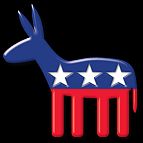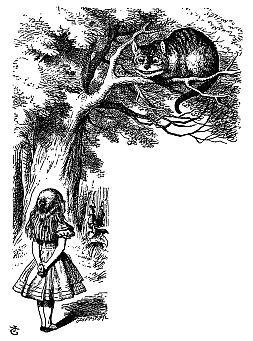What is a Political Party?
Great
Quote from 1927
Here in the last generation, a development has taken place which finds an analogy nowhere else. American parties have ceased to be voluntary associations like trade unions or the good government clubs or the churches. They have lost the right freely to determine how candidates shall be nominated and platforms framed, even who shall belong to the party and who shall lead it. The state legislatures have regulated their structure and functions in great detail."
Source: American Parties and Elections,
by Edward Sait, 1927 (Page 174)
Quoted from: The tyranny of the two-party system,
by Lisa Jane Disch c2002
Here in the last generation, a development has taken place which finds an analogy nowhere else. American parties have ceased to be voluntary associations like trade unions or the good government clubs or the churches. They have lost the right freely to determine how candidates shall be nominated and platforms framed, even who shall belong to the party and who shall lead it. The state legislatures have regulated their structure and functions in great detail."
Source: American Parties and Elections,
by Edward Sait, 1927 (Page 174)
Quoted from: The tyranny of the two-party system,
by Lisa Jane Disch c2002
In the past a political party was a
private organization with a
constitution. It's members or their elected
representatives could write a party platform. Any
political candidates would be required to agree to the
platform if they wished to
run under the party's ballot name.
To
the best of my knowledge, in most other democratic nations
this is still the case! For one thing, many other nations have signed
the
Copenhagen Document of the Helsinki Accords into national law.
The
Copenhagen Document of the Helsinki Accords states in part:
(5.4) - a
clear separation between the State and political parties; in
particular, political parties will not be merged with the State;
particular, political parties will not be merged with the State;
(7.6)
- respect
the right of individuals and groups to establish, in full freedom,
their own political parties or other political organizations and
provide such political parties and organizations with the necessary
legal guarantees to enable them to compete with each other on a basis
of equal treatment before the law and by the authorities;...
ref. http://en.wikipedia.org/wiki/Ballot_access
pdf of full Copenhagen Document of the Helsinki Accords
ref. http://www.osce.org/odihr/elections/14304
Background
Some of
you are probably aware
that, most U.S. states require nomination by primary
election.
This started in the big cities in the 1880's. One of the
reasons
this was done originally was to limit the ability of immigrants and the
urban poor from using the right of association effectively in politics.
At the time the stated desire was to "Break the Political Machine!” or
"Destroy the Political Bosses!" Of course another name for
this
"machine" is a private political organization, and "political bosses"
included elected leaders of those private member based political
organizations. Later this was slowly extended to state, and
congressional elections, to limit the ability of the middle and
upper-middle class to organize effectively at those levels
By requiring, as opposed to allowing political parties to nominate candidates by public primaries, the state eliminates the effective power of party organizations. Political parties technically still exist, but now they have no control over the candidates that run under the parties name!
A voter in a primary election is voting for a single candidate not a political party. The fact that they have chosen to run under a specific political label means very little. It's important to remember that one elected politician cannot pass a law! One elected politician cannot even get a bill out of the committee!
A modern "party" candidate is just an individual that competes in a single election district. By registering with the state as a member of the party label of their choice - just like any voter who wishes to vote in primary elections (excluding hefty fees & many reporting requirements) - they may choose to run under labels such as Republican, or Democrat, or any other party that has achieved similar ballot status! I would not view them as members of any political party, in either the traditional or international sense. There is no citizens organization, or party leader, that has the power and responsibility for these labeled politicians.
In the absense of the traditional dues paying, member based, association of citizens that organize politicians under a party ballot label, politicians are organized by other means. The following two articles from this website provide further information.
Modern Party Platforms
Our National Committees: Ever wonder what they do?
By requiring, as opposed to allowing political parties to nominate candidates by public primaries, the state eliminates the effective power of party organizations. Political parties technically still exist, but now they have no control over the candidates that run under the parties name!
A voter in a primary election is voting for a single candidate not a political party. The fact that they have chosen to run under a specific political label means very little. It's important to remember that one elected politician cannot pass a law! One elected politician cannot even get a bill out of the committee!
A modern "party" candidate is just an individual that competes in a single election district. By registering with the state as a member of the party label of their choice - just like any voter who wishes to vote in primary elections (excluding hefty fees & many reporting requirements) - they may choose to run under labels such as Republican, or Democrat, or any other party that has achieved similar ballot status! I would not view them as members of any political party, in either the traditional or international sense. There is no citizens organization, or party leader, that has the power and responsibility for these labeled politicians.
In the absense of the traditional dues paying, member based, association of citizens that organize politicians under a party ballot label, politicians are organized by other means. The following two articles from this website provide further information.
Modern Party Platforms
Our National Committees: Ever wonder what they do?
References for nomination by primary election and it's origins.
1. Why America Stopped Voting:
The Decline of Participatory Democracy and the Emergence of Modern American Politics.
By Mark Lawrence Kornbluh (New York and London: New York University Press, 2000. xv plus 243pp.
Chapter 5
Progressive Reform: The Attack on Party Politics page 122 - 125
Quote:
"Desiring to limit even further partisan control over the nomination of candidates, some reformers attempted to replace party conventions altogether with state-run, direct primaries.
Although the legislation concerning primary elections varied, more than three-quarters of the states established mandatory direct primaries for all statewide offices by 1917, and many extended this process to local offices as well."
2. WikiPedia: Primaries in Europe
This article used to say something like mandatory nominating primaries are not used in Europe unlike the U.S. Now it says essentially the same thing but in a more confusing manner. "In Europe, primaries are not organized by the public administration but by parties themselves. Legislation is mostly silent on primaries."
Full permission for non-profit distribution
?GOP?
?
 ?
?
 ?
?Chesire Cat Politics





Much
like
Alice's Cheshire cat in the Disney cartoon Alice
in Wonderland, political parties have disappeared -
leaving behind nothing but
the many similar smiles of very independent,
entrepreneur politicians.



Modern U.S. attempts at realistic political party
platforms.
One
elected politician cannot pass a law. One elected politician cannot
even get a bill out of the committee! Obviously the voters
would
tend to be very interested in political platforms.
Politicians could organize themselves, or be organized by money, or be organized along party lines by the party leadership or any combination of those.
Politicians could organize themselves, or be organized by money, or be organized along party lines by the party leadership or any combination of those.
Do organized & specific political promises work?
Examples:
Republican Contract with America
1994 midterm elections
Result Republicans gained control of both Houses of Congress
http://en.wikipedia.org/wiki/Contract_from_America
The Democrat's 100 hours plan
2006 midterm elections
Result Democrats gained control of both Houses of Congress
http://en.wikipedia.org/wiki/100-Hour_Plan
Republican Pledge to America
2010 midterm elections
Result Republicans gained a majority of seats in House of Representatives
http://en.wikipedia.org/wiki/Pledge_to_America